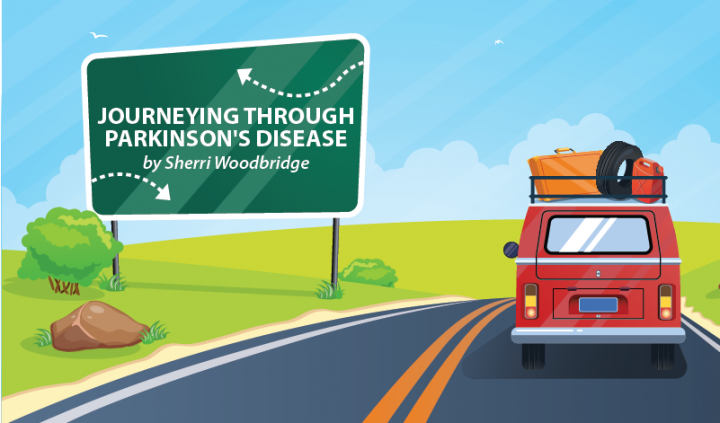Intimacy Can Be Challenging with Parkinson’s Disease
Written by |

The other day, my husband told me he felt alone. Then he said he felt distanced. How could that be? We are together almost every day, 24/7. But being together and being together are very different, especially when it comes to having Parkinson’s disease.
This disease has many symptoms, of which tremor is the most prominent. Other symptoms are not often discussed, particularly depression. Another that I will discuss in this column is intimacy difficulty.
Most people with Parkinson’s are aware that intimacy can be an issue for many reasons. One may be an unintentional lack of interest the person with PD may not even be aware of. Another may be pain or discomfort. Yet another may be the inability to “perform.” Any of these reasons can disrupt the relationship, sending messages of rejection or appearing to indicate the partner is undesirable and even unloved.
First, let me say that, whether you’re the person with PD or the partner, you are not alone. I, too, struggle with this subject for many reasons. I can feel inadequate in many ways, but I didn’t realize I was inadvertently making my husband feel distanced and alone until the other day when we had a heart-to-heart talk.
According to the American Parkinson Disease Foundation, “From lack of sexual desire to low libido to difficulties with orgasmic functioning, this chronic, progressive, neurological disease can impair your sexuality in one way or the other.” The Michael J. Fox Foundation adds that “as many as 70 to 80 percent of those with PD experience sexual dysfunction.”
The Parkinson’s Disease News Today forums are a place to connect with other patients, share tips and talk about the latest research. Check them out today!
Dealing with bradykinesia, or slowness of movement, and rigidity can become an issue in a relationship. Symptoms such as tremors and dyskinesia also can contribute to dysfunction and leave one or both partners feeling inadequate.
This also plays out in everyday signs of affection such as hugging, kissing, or holding hands. The person with Parkinson’s can appear aloof to the need for affection and leave a partner feeling more distanced with each day. Before long, both are wondering why the other has stopped finding them attractive and don’t want to be with them sexually anymore. I can’t help but believe that the sad stories I have heard about spouses who have left their partners with Parkinson’s disease are more likely due to a lack of communication than just having the disease.
It’s hard to overcome feelings of inadequacy when they are kept bottled up and aren’t talked about. The first person to talk to about how you’re feeling is your partner or spouse. A frank and honest discussion about the effects of Parkinson’s on intimacy and how to overcome it in everyday life is critical. It might mean an intentional hug in the morning or time set aside only for conversation. (This does not include talking while watching the television.)
Speaking of television, the other day, I was watching a show and at the end, a man proposed to his girlfriend. Of course, she said yes — it was a Hallmark movie, after all. Then the guy said, “I hope the magic never fades.”
None of us wants the magic to fade, especially if we have Parkinson’s. It’s taken so much already. We need to keep communicating with each other, no matter how hard it may be at times. It’s those times that bind us together more tightly, and the tighter we hold each other, the greater the magic will be.
***
Note: Parkinson’s News Today is strictly a news and information website about the disease. It does not provide medical advice, diagnosis or treatment. This content is not intended to be a substitute for professional medical advice, diagnosis, or treatment. Always seek the advice of your physician or another qualified health provider with any questions you may have regarding a medical condition. Never disregard professional medical advice or delay in seeking it because of something you have read on this website. The opinions expressed in this column are not those of Parkinson’s News Today or its parent company, Bionews Services, and are intended to spark discussion about issues pertaining to Parkinson’s disease.







Steven MacCarthy
Sherri,
Many thanks for this wonderfully sensitive and thoughtful commentary on issue--immensely appreciated!
Steven
Sherri Woodbridge
Steven - Thanks for your comment - glad you enjoyed it!
Terry Robertson
This does make a spouse feel unloved when you get so little attention from one who was formerly very affectionate and caring. It leaves you feeling alone even when you are not physically alone.
Connie Junior
I feel exactly the way you just described. Alone,unappreciated, angry, and then very guilty. Married 47 years with a very affectionate husband. We have a high functioning autistic 40 year son who has always lived with us. I stopped working full time last year when my husband had difficulties and was hospitalized and rehab. I am the caretaker for both, cook, maid, financial and banker person, shopper, decider or most everything that comes around each day. This is a difficult topic to bring up with my husband. I don’t want to add any more stress to his life now by saying how I feel. He’s the one with the ugly disease. It breaks my heart one minute and then tired the next. I just wondered if anyone out there has a similar problem like mine.
Sherri Woodbridge
Connie - I am so sorry things are so hard for you. This is indeed an ugly disease. There are several people with PD who will sympathize with you. Might I suggest a FaceBook support group. There are several - just women/caregivers/general and more. If you are interested, let me know and i can get you the FB address or you can go to facebook and search for a group by entering Parkinson’s disease support groups. Good luck!
Connie Junior
Sherri Woodbridge, thank you for responding back. I just went on Facebook to join a caretakers support group. I just feel so overwhelmed and no one to talk to. It’s been so difficult lately and finding it hard to rest myself and my mind. Thank you very much for this suggestion.
Karen Mines
I feel exactly as you described. Exactly. Thank you.
Loretta Gabaldon
I have just met and love my new friend who has Parkinson's. He is absolutely the most loving and precious person I have ever met. He loves hugging and kissing. I do too. I know that he has issues with his toes buckling up at times, but we don't live together, but I think of all these loving things I can do for him. I'm taking it one day at a time, but so enjoy his friendship I hope to receive your news letters.